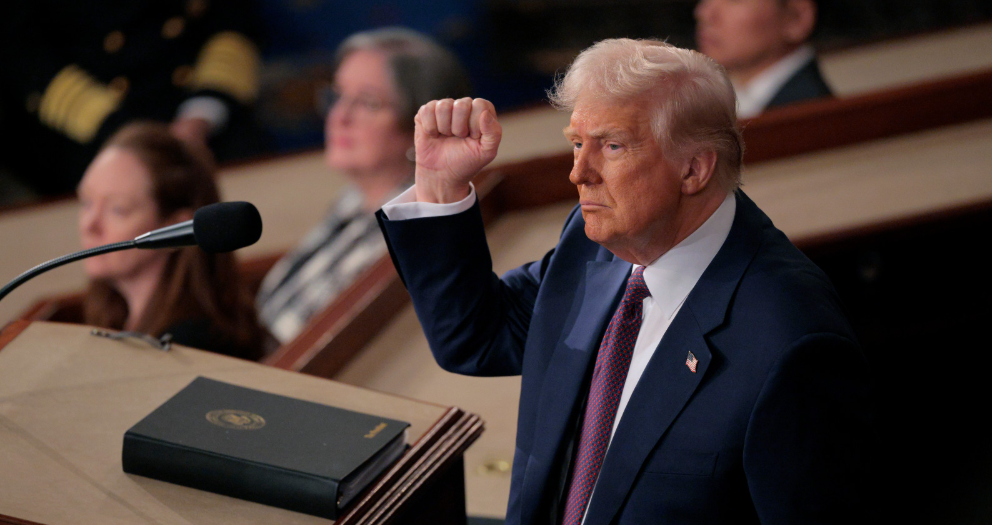President Donald Trump has signaled his intent to renegotiate provisions of the widely discussed “big, beautiful” tax and spending bill, just days after it came under public scrutiny by billionaire entrepreneur Elon Musk. Speaking to reporters on Wednesday, Trump conveyed a mix of frustration and optimism, emphasizing the need for unity among Republicans in the Senate to ensure the bill’s eventual passage.
A Bill Under Fire
The legislation, which has become a centerpiece of the Trump administration’s fiscal agenda for 2025, has drawn mixed reactions from both conservative and business communities. While it includes provisions aimed at stimulating economic growth and preserving tax relief measures for middle-class Americans, critics argue that it fails to adequately address the ballooning national deficit.
“I’m not happy about certain aspects of it, but I’m thrilled by other aspects,” Trump told reporters during a brief media interaction. He did not elaborate on specific provisions that were under review, but stressed the importance of collaboration to secure legislative support. “We need to get a lot of support,” he said, indicating that negotiations with key Republican senators were ongoing.
The bill has yet to pass the Senate, where it faces scrutiny from fiscally conservative lawmakers concerned about government spending levels.
Elon Musk’s Critique Sparks Debate
The momentum behind Trump’s latest remarks appears to have been partially fueled by comments made by Elon Musk, CEO of Tesla and SpaceX, who criticized the bill during a CBS “Sunday Morning” interview broadcast late Tuesday.
Musk, a longtime advocate for streamlined government and technological efficiency, expressed disappointment over what he described as a “massive spending bill” that does little to reduce the federal deficit. “I think a bill can be big or it can be beautiful. But I don’t know if it can be both,” Musk remarked, calling into question the administration’s fiscal responsibility.
He specifically highlighted how the bill, despite claims of long-term savings, continues to drive federal expenditures upward. “It actually increases the budget deficit, just not as quickly,” Musk noted, suggesting that the bill could undermine efforts made by the Department of Government Efficiency (DOGE), a recently established federal office with a mission to reduce bureaucratic waste.
The Role of the Department of Government Efficiency
The DOGE, which was formed under Trump’s second term, has emerged as a focal point in the budget negotiation process. Backed by both conservative think tanks and several high-profile business leaders, DOGE has released a series of reports identifying billions in potential savings through reduced administrative overhead and restructured foreign aid.
One particularly controversial revelation from DOGE involved findings that over 12 million Social Security recipients receiving USAID-related benefits were listed as being over 120 years old. These findings have intensified Republican demands for reform and bolstered support for the department’s proposals.
House Speaker Mike Johnson of Louisiana underscored this point on Wednesday, announcing that the GOP-led House would begin formal proceedings to integrate DOGE’s findings into the legislative process.
“The House is eager and ready to act on DOGE’s findings so we can deliver even more cuts to big government that President Trump wants and the American people demand,” Johnson wrote on social media. He confirmed that once the White House submits its rescissions package, the House will quickly move to pass corresponding legislation.
What Comes Next?
According to a White House official, the administration is preparing a targeted package of proposed spending cuts identified by DOGE. This “rescissions package” could be sent to Congress as early as next week and will likely be tied to the upcoming 2026 budget.
The plan would essentially create a two-pronged approach: first, by renegotiating and adjusting elements of the existing bill to address concerns from lawmakers like Musk; and second, by integrating waste-reduction measures from DOGE to reassure fiscal conservatives that meaningful reform is underway.
Republican lawmakers have been pushing for such measures for months, and Trump’s openness to renegotiation could signal a rare moment of bipartisan alignment—if Democrats are willing to come to the table. However, Democratic leaders have not yet publicly commented on the renegotiation efforts.
Trump’s Strategic Calculus
Trump’s remarks this week reflect his broader strategy of balancing economic populism with fiscal discipline. The “big, beautiful” branding of the bill echoes his 2017 tax cuts, but this time, public tolerance for unchecked spending appears lower.
In a politically charged environment leading up to the 2026 midterm elections, Trump seems keen to maintain support from both the business community and conservative grassroots activists. His decision to distance himself from certain elements of the bill, while championing others, could be seen as an attempt to fine-tune the legislation to better match evolving political and economic realities.
Moreover, by proactively addressing concerns from high-profile critics like Musk, Trump is attempting to maintain a united front among his influential supporters without appearing to capitulate to corporate pressure.
Conclusion: Balancing Vision With Fiscal Reality
As Congress prepares to take up the renegotiated version of Trump’s “big, beautiful” bill, the stakes remain high. The bill’s ability to stimulate growth while reducing wasteful spending will likely determine its legacy.
The White House’s forthcoming rescissions package, incorporating DOGE’s findings, will be a critical test of the administration’s commitment to fiscal responsibility. While Trump has repeatedly used ambitious rhetoric to sell his economic vision, translating that into a sustainable budget plan remains the administration’s challenge.
Fact Check:
-
✅ Elon Musk did criticize the bill, calling it “massive” and saying it increased the budget deficit, per his interview on CBS “Sunday Morning.”
-
✅ President Trump did state he was not happy with parts of the bill and expressed willingness to renegotiate.
-
✅ DOGE (Department of Government Efficiency) is a real department established during Trump’s second term and has released reports on federal inefficiencies.
-
✅ House Speaker Mike Johnson confirmed that the House would act on DOGE’s findings once the White House submits its rescissions package.
-
❌ No independent confirmation currently exists that 12 million people over 120 years old are receiving aid—this claim stems from internal reports that are under further verification.
As lawmakers prepare to tackle the legislation in the coming weeks, the bill’s evolution will serve as a barometer of how effectively the Trump administration can align bold promises with grounded governance.









